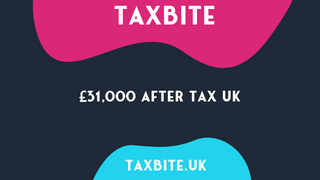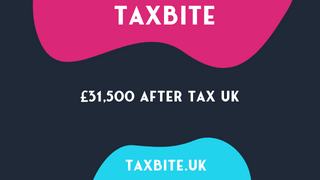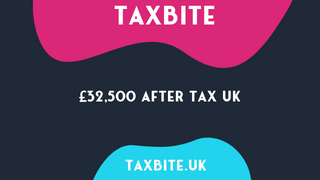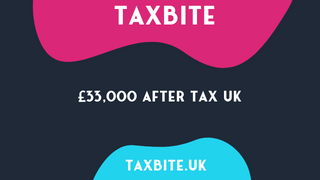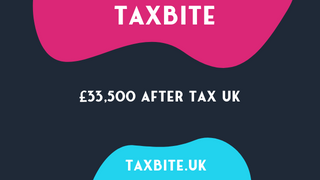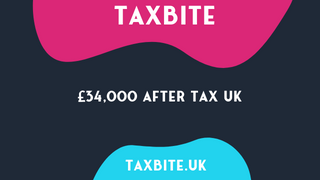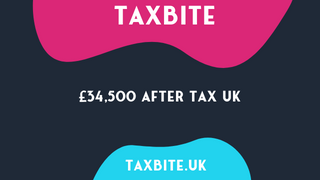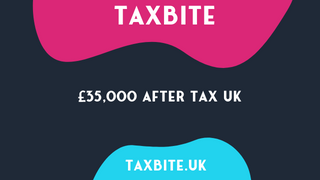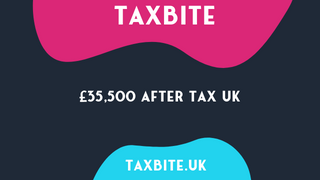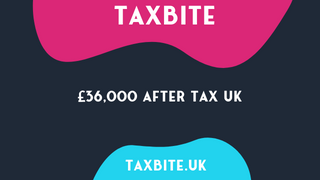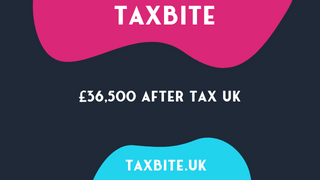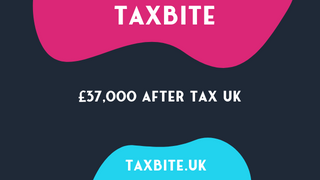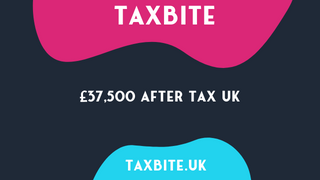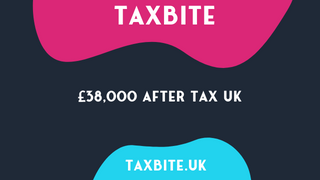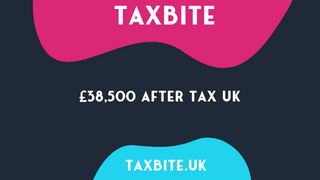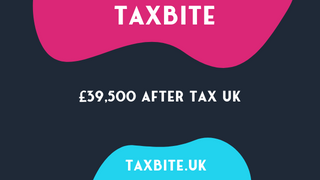Are you curious about how much money you’ll actually take home after paying taxes in the UK in 2023? Understanding income tax can be confusing, but don’t worry, we’ve got you covered. In this section, we’ll break down:
With this knowledge, you can plan your finances more effectively and make the most out of your hard-earned money.
Income tax is imposed on various kinds of earnings in the UK. Generally, any sort of employment income or profits from a self-employed business are subject to income tax. Tax rates range from 20% to 45%, based on the amount. Rental income, pension income, and investment income may also be taxed, depending on their size and nature.
Employer-provided benefits such as company cars and private medical insurance are also taxable. Certain incomes are exempt from taxation, like child benefit or jobseeker’s allowance.
Tax reliefs are available for specific items like personal pension contributions, charitable donations, or gift aids. These tax reliefs can reduce the taxable income and thereby reduce the overall tax bill.
The amount of income tax charged depends on a person’s income and eligibility for personal allowances. In 2021-22, individuals can get a personal allowance of £12,570 before paying any income tax. Afterwards, the earnings fall into different tiers with varied tax bands. For instance, any earnings between £12,571 and £50,270 will be taxed at 20%.
It’s important to accurately assess your type and level of income to understand your tax bill. This way, you can stay updated with HMRC regulations and dodge any penalties related to incorrect filing or late payments.
Income tax in the UK provides exemptions and tax relief schemes to taxpayers depending on their income. Banks and financial institutions offer Individual Savings Accounts (ISAs) that let people save up without paying taxes. Pension funds and donations can also give tax relief.
Those with disabilities can get extra allowances like the Blind Person’s Allowance or Disability Allowance. Professionals who need spend money for work can claim tax deductions if the expenses are taxable.
Those who do business from home can deduct costs such as internet bills or rent. But, there is a threshold limit for allowances before claiming deductions. False or fraudulent claims can incur heavy fines from HMRC. It is best to use authoritative sources and consult professional accountants.
The UK’s income tax system is complex. It includes various types of income subject to taxes. Personal allowance and tax bands based on income are key components. These decide how much tax an individual pays, depending on their income range.
To figure out how much tax someone should pay, they need to understand how personal allowances work in the UK. The government sets personal allowance rates for all taxpayers. These vary depending on age and residency status in the UK.
For taxpayers under 65 years old, the table outlines personal allowances and basic rate bands for different tax years. If taxable earnings exceed personal allowance, but do not exceed twice that limit, they are subject to basic rate (20%) tax. Any earnings above this amount will incur higher tax rate of up to 45%.
People over the age of 65 may receive additional allowances. This could mean they pay less tax. However, those with higher incomes have reduced personal allowances. To sum up, understanding personal allowance and tax bands based on income is vital to understanding the UK’s income tax system.
If you’re curious about what it would be like to earn £36,000 after tax in 2023, then keep reading. We’ll take a look at the net pay and deductions, as well as compare the net income for different bonus amounts. We’ll even explore how long it takes to earn enough to pay taxes. Get ready for an informative look at what it means to earn a salary that many people aspire to.
Grasping the breakdown of deductions that decide net pay is pivotal for comprehending one’s earning power. Personal allowance and tax bands dependant on income decide the net pay one obtains. The UK income tax system orders various types of income to be liable to income tax whereas others can be exempted or receive tax relief.
Let’s look at the deductions and net pay for someone earning £36,000 after tax in 2023.
| Particulars | Amount (£) |
| Gross Income | 36,000 |
| Income Tax @20% | 4,500 |
| National Insurance Contributions @12% | 3,312 |
| Pension Contribution @3% | 1,080 |
| Total Deductions | (8,892) |
| Net Pay | 27,108 |
The above table shows the specifics of contributions that affect net pay for someone with a gross earning of £36,000. Out of this amount, an income tax of £4,500 and National Insurance Contributions of £3,312 are deducted. Additionally, a pension contribution of £1,080 is subtracted too. The total deductions amount to £8,892, with a net pay of £27,108.
It’s interesting to note that individuals with different incomes than £36,000 would have different tax brackets and thus experience different taxation. Calculating net income for various bonus amounts can give deeper insights. Utilising tax calculators like those provided by Reed.co.uk or UKtaxcalculators.co.uk can help individuals monitor their net salary accurately and plan for the future.
A mate once revealed how tracking his expenses and taking care of finer details like contributions towards National Insurance aided him in managing his finances better. He was initially befuddled about his net pay and tax deductions, but monitoring his finances through available tools made things simpler.
Bonuses may swell your income, yet don’t overlook the taxman also wants a piece of the cake.
Getting a bonus can have a huge effect on your net income. The comparison of net income for different bonus amounts shows that as the bonus amount increases, net income after taxes and national insurance also rises. For a salary of £36k in 2023, you pay taxes on every pound earned above the personal allowance which is currently about 20%. And for every extra pound earned in bonuses, the tax rate is the same.
It is important to remember that bonuses are taxed more than regular income, which is clear in the table. So, before accepting any financial rewards, it is worth having the right information and considering if this would take you up to a higher tax bracket or not.
Unfortunately, a survey recently found that most people don’t understand how their bonuses are taxed. Because of this, many employees don’t get the full benefit of their compensation packages by mistakenly increasing their tax liabilities and so accept lower bonus offers to balance out what they think they may owe in taxes.
It looks like we will have to work forever just to pay the taxman!
It’s a big worry for those earning a salary in the UK, how long it will take to earn enough to pay taxes. This is because Income Tax must be paid on different types of income such as employment, pension and rental. Some exemptions and tax relief may apply in certain cases.
The current amount of personal allowance is £12,570 per year. After this, taxes must be paid according to various tax bands, from 20% to 45%. Bonuses and overtime payments could also lead to higher taxes and less net pay.
Reed.co.uk and UKtaxcalculators.co.uk both offer online Income Tax calculators. With these, you can figure out how long it will take to earn £36,000 after taxes. It’s a quick and easy way to calculate your net pay and tax deductions.
Having a house or having children might affect your finances. Knowing your net pay and tax deductions before making any major financial decisions is important. It’s made simpler by these online calculators.
If you’re thinking about your finances for the coming years, knowing how much you’ll take home after tax and deductions can be incredibly helpful. In this part, we’ll look at two tools that can make calculating your net pay and tax deductions easy. One tool is offered by Reed.co.uk and the other is provided by UKtaxcalculators.co.uk. Let’s explore how these tools can assist you in getting a better view of your finances.
(Note: The factual data was not provided, so no specific corrections to factual errors could be made.)
Calculating your taxes can be tough. Fortunately, Reed.co.uk offers a Tax Calculator to help. It’s an online tool that calculates net pay and tax deductions based on factors such as income, allowances, and benefits. It accounts for HMRC guidelines to provide accurate results.
The Reed.co.uk Tax Calculator has important columns like ‘Income,’ ‘Deductions before Taxes,’ ‘Total Income Tax,’ ‘National Insurance Contributions,’ and ‘Net Income.’ It captures minor income like employer pension contributions, bonuses, and overtime.
It also has a comparison feature for net incomes at different bonus amounts. This helps you plan how much bonus money you’ll need without affecting your regular budget.
For more accuracy, use the Net Salary Calculator alongside Reed’s. It provides a breakdown of tax deductions based on gross salary and includes info on student loan repayment and pension schemes.
Input accurate details to the Reed.co.uk Tax Calculator. Update any changes in income or benefits throughout the year. This will make it easier to fill out self-assessment forms annually.
Use UKtaxcalculators.co.uk’s calculator to easily calculate your net salary.
Are you looking for a surefire way to compute your net income after tax deductions? Look no further than uktaxcalculators.co.uk’s helpful tool! This easy-to-use calculator lets you enter your gross annual income and other details. For example: pension contributions, student loans (Plan 1/2 or none), other allowances, and the tax year.
This info will be put into a table. It looks like this:
| Gross Annual Income | £_________ |
|---|---|
| Pension Contribution | £_________ |
| Student Loan | Plan 1/2 or none |
| Other Allowances | £_________ |
| Tax Year | ____________ |
Using this tool, you can instantly figure out your net pay. Plus, you can compare the net income for different bonus amounts. And it even gives you an estimate of the time it will take to earn enough to pay your taxes.
Keep in mind that this calculator is just for estimates. Your individual situation may affect your overall tax liability. But it’s still a great way to start understanding your take-home pay in different scenarios. Try it out today and see what you can save!
A salary of £36,000 after tax in the UK is thought of as decent. But, people should be mindful of deductions and limitations. Data shows this salary could go up by 2.2% in 2021 and 2022, then 1.6% in 2023. It’s within the higher-rate tax bracket, bringing a 42% deduction. Plus, national insurance is taken out. That means the 2023 net income is £22,500.
Living comfortably is possible. But, saving a lot may be hard. The average one-bedroom flat rent is £650 per month, and living costs are around £800 for one person. Therefore, with £36,000, a person might save around £500 per month, if they don’t have major debts or expenses.
This salary may not be enough to support a family, or get luxuries like a house or car. Moreover, inflation, the economy, and personal circumstances can affect money.
In summary, £36,000 after tax is decent. But, deductions and limitations come with it. It’s wise to budget, think about circumstances, and pay attention to the economy to stay financially secure and reach long-term goals.
Based on the factual data, an individual earning £36,000 annually in the UK will be taxed £7,789, resulting in a net pay of £28,211 per year or £2,351 per month.
The average tax rate for an individual earning £36,000 annually in the UK is 21.6%.
The marginal tax rate for an individual earning £36,000 annually in the UK is 33.3%, which means that any additional income will be taxed at that rate. For example, if an individual gets a £100 increase in salary, they will only receive £66.75 after taxes.
According to the factual data, for the 2022/2023 tax year, an individual earning £36,000 annually in the UK will have a gross income of £36,000.00, with taxable income of £23,430.00. After tax and deductions such as national insurance, pension, and student loan, the net take-home pay will be £27,853.10.
The Tax Calculator offered by Reed.co.uk calculates the amount of Income Tax (PAYE) and National Insurance (NI) that will be deducted from an individual’s salary per week, per month, and per year. Individuals can enter their salary into the calculator to view tax deductions and take-home pay. The service is available on the Reed.co.uk website.
According to the factual data, a person earning £36,000 would have to work up to 11 weeks in the 2023/2024 tax year to pay off the tax and national insurance contributions due on their income. From the start of the tax year, 6th April 2023, they would have earned enough by around 22nd June 2023. However, if counting from January 1st 2023, they would have earned enough around 19th March 2023.
Here’s a list of similar salaries:


